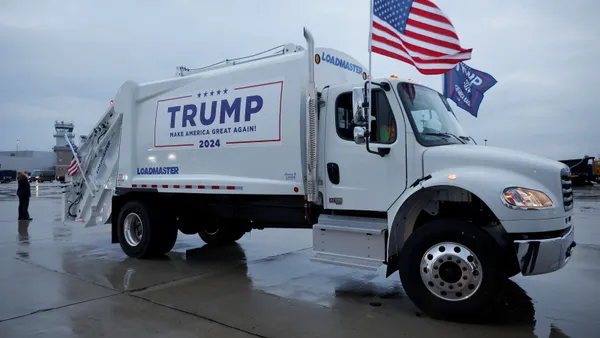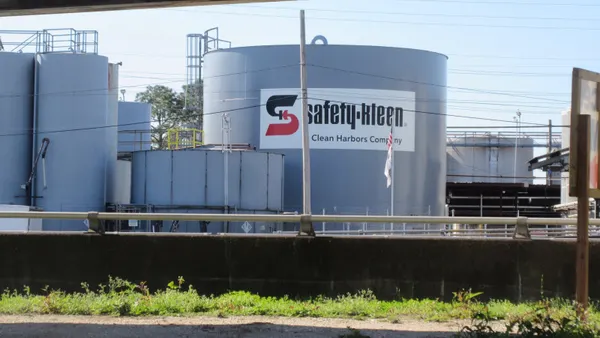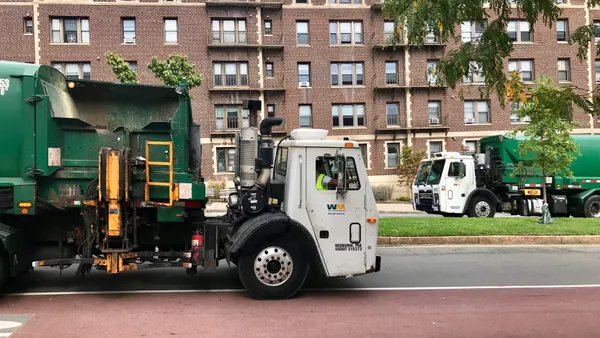Dive Brief:
- The Southeastern Public Service Authority (SPSA), based in Chesapeake, VA, is considering making changes to its waste-to-energy program — which could have adverse affects on the U.S. Navy.
- SPSA currently has an agreement to send its waste to Wheelabrator Technologies waste-to-energy plant in Portsmouth, VA. The facility takes in 700,000 tons of solid waste annually, and then generates 600 million pounds of steam to power the Norfolk Naval Shipyard. However, SPSA is considering more reliance on landfills rather than using the waste-to-energy program.
- The Navy has a goal to reach a 50% threshold for alternative energy by 2020. If SPSA doesn't supply the Wheelabrator facility with waste, the facility will no longer be able to supply the Navy with renewable energy needed to meet its goal.
Dive Insight:
Officials from SPSA say that the possible decision to stop sending waste to Wheelabrator is financially driven. "Our position is, we don't want to harm Naval activity, but our consumers have been paying a tremendous amount," said SPSA Executive Director Rowland Taylor to 13 News Now.
However, the decision to save money comes with a multiple consequences: the Naval Shipyard will lack a source of renewable energy, Wheelabrator will take an enormous financial hit, and there will be a missed opportunity to turn waste into energy instead of sending it to the landfill.
Virginia Secretary of Veterans and Defense Affairs John Harvey sent a letter to Virginia Beach Mayor Will Sessoms, expressing concerns that such changes could raise expenses at the shipyard. Harvey, along with officials at Wheelabrator, are hoping that SPSA can develop a compromise.











